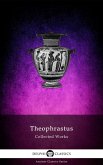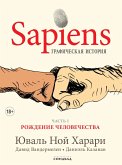In "The Natural History of Pliny (Vol. 1-6)", Pliny the Elder offers an unparalleled compendium that encapsulates the breadth of ancient knowledge and inquiry. Written in the 1st century CE, this monumental work spans various disciplines, including astronomy, geography, botany, and zoology, employing a meticulous yet narrative-driven style that reflects the Roman quest for understanding the natural world. Pliny's organizational structure of books-ranging from cosmology to the properties of minerals-invites readers into a scholarly discourse, revealing the interconnectedness of nature while simultaneously reflecting the intellectual currents of his time, characterized by a blend of empirical observation and mythological interpretation. Pliny, a Roman author and naturalist, was motivated by a profound curiosity about the world and a desire to preserve knowledge. His experiences as a military commander and a public official allowed him unique insights into the practical applications of natural history, including agriculture and medicine. This background, intertwined with his admiration for earlier scholars like Aristotle and Theophrastus, solidified his commitment to documenting and classifying the natural phenomena around him amidst the turbulent socio-political landscape of the Roman Empire. Pliny's "Natural History" is not merely an encyclopedia but an invitation to engage with the intricacies of the natural world. Readers of all backgrounds-from scholars to laypersons-will find this work both enlightening and accessible, offering a timeless perspective on humanity's enduring relationship with nature. It is a crucial text for anyone seeking to understand the foundations of scientific thought and the legacy of classical learning.
Dieser Download kann aus rechtlichen Gründen nur mit Rechnungsadresse in A, B, BG, CY, CZ, D, DK, EW, E, FIN, F, GR, H, IRL, I, LT, L, LR, M, NL, PL, P, R, S, SLO, SK ausgeliefert werden.
Hinweis: Dieser Artikel kann nur an eine deutsche Lieferadresse ausgeliefert werden.









